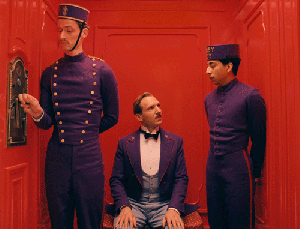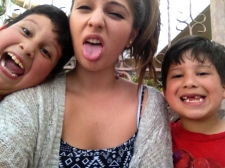Four OH Moments in Writing: Lessons Learned That Literally Made Me Say “OH”
Approaching writing was once like trying to approach the bunnies that roam the grounds of Cal Poly Pomona: I’m not at all sure how I should go about it. I always think I am so close, SO close, to petting a little bun. I approach it carefully and quietly. I try to look as unintimidating as possible, temporarily removing my MAC “Rebel” lipstick and nose piercing. Nevertheless, it scurries away every time. I’ve accepted that I will never pet the bunnies that live on campus.
With writing, I was never quite sure how to get started writing on my own. I read, but I wasn’t reading the right things, and I wrote, but my writing wasn’t getting any better. I thought I was close, but I was way off; comparing new work to old work shattered those beliefs. I almost wrote myself off as someone who just couldn’t write.
Here are four OH lessons that helped me realize that just about anyone who tries can:
1 Good writing begins with good reading habits
Reading will undoubtedly enhance your writing abilities. Stephen D. Krashen, author of The Power of Reading: Insights from the Research, has examined that avid readers become better thinkers. His research shows that those who read more frequently have less “ ‘writing apprehension’ because of their superior command of the written language” (36). One aspect of his theory stunned me: writing more frequently will not result in better writing. He explains, “Writing style does not come from actual writing experience, but from reading… Actual writing can help us solve problems” (132). OH. So that means that if I read cheesy teen romance novels, whose style I hate but story line I love, I’ll probably write like that too? Yes. Read the books of authors you aspire to write like. Krashen mentions that writing helps us solve problems. Case in point: I didn’t realize these lessons had influenced me so heavily until I started writing about them.
2 Always keep your audience in mind
I recently attended a lecture entitled “Why We Write, and Where,” by Dr. Sarah Mesle, part time English professor at UCLA, Senior Humanities Editor for the Los Angeles Review of Books, and co-editor for Avidly.org. She also emphasized the importance of reading, her reason for doing so a little different from Krashen’s. She advised us to read to be interesting in order to keep our readers interested. Aside from that, she told attendees to ask themselves why their readers cared about what they were writing and who their readers were. I had never thought about my readers because I had never bothered to share my work, which brings me to my next point…
3 Feedback is essential
This blog is the first time I ever let anyone other than a teacher read my writing. And the saying “you are your own worst critic” is very true in my case. I was always afraid of the negative feedback I would receive from others. The Internet is a brutal place. However, the positive feedback and constructive criticism I have received from other bloggers has really improved my self-esteem and my writing. Don’t be afraid of negative commentary; if it is not constructive advice then feel free to disregard it. There are plenty of people out there that will be happy to comment something useful!
4 Break free of the formatting
Take it from a girl who wrote Jane Schaffer paragraphs daily for four years in high school; break free because it feels great. Not all writing will fit the mold. If you are a good writer trying to be a great writer, then preassembled essay structures will be restricting. Write in a way that exhibits your style and your ideas effectively. If that happens to be in ten paragraphs, each composed of four sentences, or four paragraphs, each composed of ten sentences, or even a mix of both long and short paragraphs, then so be it. Nothing is set in stone when it comes to style.
Works Cited
Krashen, Stephen D. The Power of Reading: Insights from the Research. 2nd Edition. Portsmouth: Heinemann, 2004.







